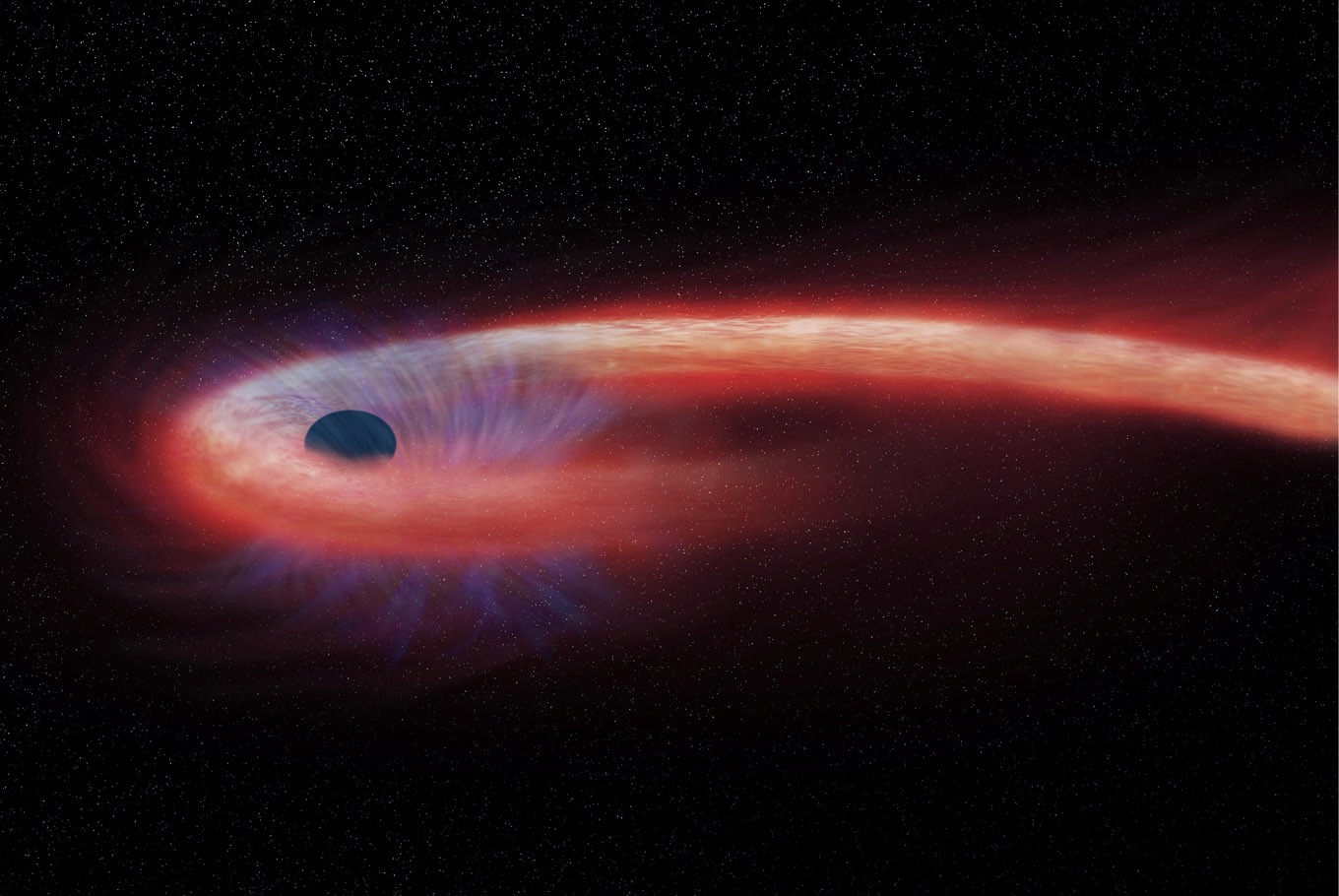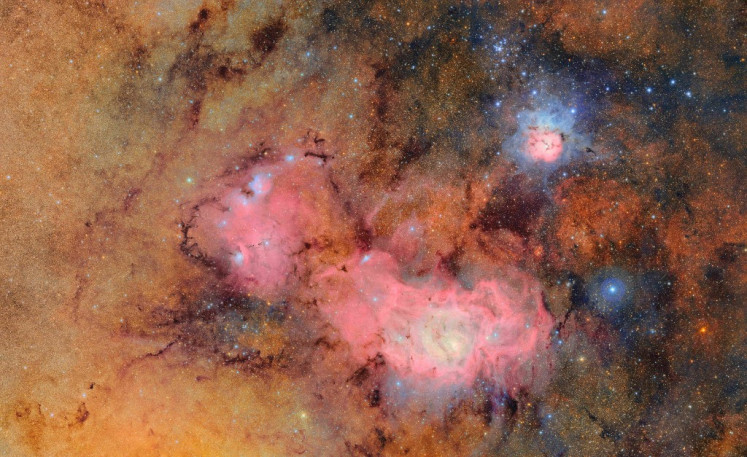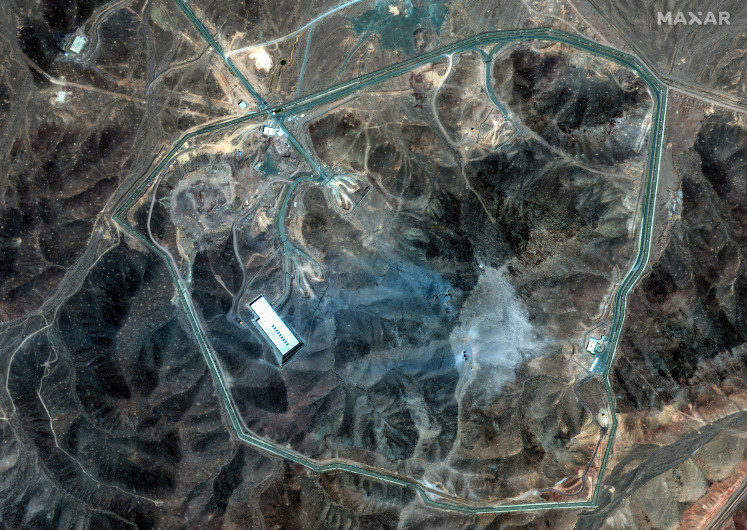Popular Reads
Top Results
Can't find what you're looking for?
View all search resultsPopular Reads
Top Results
Can't find what you're looking for?
View all search resultsUniverse dying quicker than thought, new research says
But there's no great need to panic. We still have 10 to the power of 78 years before it happens -- that's a one with 78 zeroes.
Change text size
Gift Premium Articles
to Anyone
 This artist rendering provided by NASA shows a star being swallowed by a black hole, and emitting an X-ray flare, shown in red, in the process. A new study published Monday, Feb. 6, 2017, in the journal Nature Astronomy details a black hole that's taken a record-breaking decade to devour a star 1.8 billion light-years from Earth. (NASA/Chandra X-ray Observatory/M.Weiss via AP/File)
This artist rendering provided by NASA shows a star being swallowed by a black hole, and emitting an X-ray flare, shown in red, in the process. A new study published Monday, Feb. 6, 2017, in the journal Nature Astronomy details a black hole that's taken a record-breaking decade to devour a star 1.8 billion light-years from Earth. (NASA/Chandra X-ray Observatory/M.Weiss via AP/File)
The universe is poised to die much faster than previously thought, according to new research by Dutch scientists.
But there's no great need to panic. We still have 10 to the power of 78 years before it happens -- that's a one with 78 zeroes.
However, that is a major revision from the previous estimate of 10 to the power of 1,100 years, notes the research paper from Radboud University, published in the Journal of Cosmology and Astroparticle Physics.
"The final end of the universe is coming much sooner than expected but fortunately it still takes a very long time," said lead author Heino Falcke.
A trio of scientists at Radboud set out to calculate when the most "durable" celestial bodies -- white dwarf stars -- would eventually die out.
They based their calculations on Hawking radiation, named after celebrated British physicist Stephen Hawking.
Hawking postulated in the mid-1970s that black holes leak radiation, slowly dissolving like aspirin in a glass of water -- giving them a finite lifetime.
The Radboud scientists extended this to other objects in the universe, calculating that the "evaporation time" depends on density.
This enabled them to calculate the theoretical dissolution of the longest-lasting body, the white dwarf.
"By asking these kinds of questions and looking at extreme cases, we want to better understand the theory, and perhaps one day, we can unravel the mystery of Hawking radiation," said co-author Walter van Suijlekom.
Humankind needn't worry too much about the end of the universe. Unless we escape planet Earth, we'll be long gone.
Scientists think that our Sun will be too hot for life in about a billion years, boiling our oceans.
In about eight billion years, our star will eventually expand towards the Earth, finally gobbling up our by-then barren and lifeless planet and condemning it to a fiery death.









